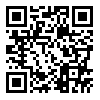مجله رویش روانشناسی از دادن گواهیهای کاغذی معذور است. لطفا تقاضا نکنید. همه گواهی ها در صفحه شخصی کاربران موجود است.
year 14, Issue 1 (Spring 2025 2025)
Rooyesh 2025, 14(1): 195-204 |
Back to browse issues page
Download citation:
BibTeX | RIS | EndNote | Medlars | ProCite | Reference Manager | RefWorks
Send citation to:



BibTeX | RIS | EndNote | Medlars | ProCite | Reference Manager | RefWorks
Send citation to:
Ghanbari Z, Talebi D. (2025). The effectiveness of neurological play therapy on executive functions and working memory of children with learning disorders. Rooyesh. 14(1), 195-204.
URL: http://frooyesh.ir/article-1-5181-en.html
URL: http://frooyesh.ir/article-1-5181-en.html
1- Master of Educational Psychology, Central Tehran Branch, Islamic Azad University, Tehran, Iran. , zohrhkanbri.1352@gmail.com
2- Master of Clinical Psychology, Semnan Branch, Islamic Azad University, Semnan, Iran.
2- Master of Clinical Psychology, Semnan Branch, Islamic Azad University, Semnan, Iran.
Abstract: (2034 Views)
The present study was conducted to determine the effectiveness of neurocognitive game therapy on the executive functions of working memory and attention of children with learning disabilities. The present research method was semi-experimental with a pre-test/post-test design with a control group and a two-month follow-up period. The statistical population of the study included all elementary school children with learning disabilities who referred to the centers of learning disabilities in Tehran in the academic year of 2023-2024, of which 30 people were selected through the available sampling method, and were randomly placed in two groups (15 in the control group, 15 in the experimental group). To collect data, Wechsler Intelligence Scale for Children-Fourth Edition (WISC-IV, 2003), Coolidge's Neuropsychological Inventory (CNI, 2002), and Cornoldi et al. 's Working Memory Test (CWMT, 1998) were used. The intervention was based on the neuropsychological play therapy protocol in eleven sessions of 60 minutes twice a week. Analysis of variance with repeated measurements was used to analyze the data. The findings showed that there was a significant difference between the mean of the post-test of working memory and attention in the two experimental and control groups. In addition, the results showed that this intervention was able to maintain its effect over time (P<0.0001). As a result, neurological play therapy can be used as an effective approach to increase working memory and attention in children with learning disabilities.
Type of Article: Research |
Subject:
Educational Psychology
Received: 2024/02/21 | Accepted: 2024/05/4 | ePublished: 2025/03/30
Received: 2024/02/21 | Accepted: 2024/05/4 | ePublished: 2025/03/30
Send email to the article author
| Rights and permissions | |
 |
This work is licensed under a Creative Commons Attribution-NonCommercial 4.0 International License. |





